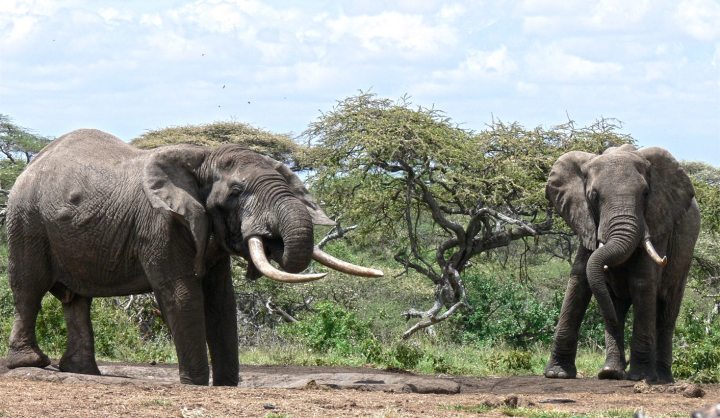South Africa
Death in China, one dollar in Africa – the irony of ivory poaching penalties

In China the penalty for poaching an elephant is death. In Africa, it is considerably less. The irony in this is that the global trade in illegal ivory is driven, for the most part, by China, some of whose citizens are helping to lay waste to Africa’s elephants, largely without fear of retribution. By SHARON VAN WYK.
Earlier this year a Chinese smuggler, apprehended in Kenya whilst in transit from the Democratic Republic of Congo to Hong Kong, was fined a mere US$350 for the haul of 439 pieces of ivory found in his possession before being released. That’s less than US$1 apiece.
This one incident illustrates perhaps the biggest challenge facing those battling to save Africa’s elephant population from almost certain extinction at the hands of ivory poachers – outdated, and in some cases woefully inadequate legislation and penalties which, rather than acting as a deterrent, actually encourage poaching.
Add to the mix corruption and political malfeasance at virtually every level of government, and the word extinction looms larger than ever, unless swift action is taken by African countries to improve the laws supposedly protecting their wildlife. Justice is most certainly not on the side of elephants.
In Kenya the current wildlife act caps punishment for the most serious wildlife crimes at a maximum fine of 40,000 Kenyan shillings (around US$470), and a possible jail term of up to 10 years. With a black market price of as much as US$7,000 per kilogram, it is infinitely affordable to get caught with your fingers in the ivory jar. Which is what happened to four Chinese citizens who were apprehended attempting to smuggle thousands of dollars’ worth of ivory out of Kenya. Their punishment? Each was allowed to pay a US$340 fine and then go free.
Kenya is far from alone. In neighbouring Uganda, poachers are punished on the same level as petty criminals with small fines or suspended sentences. In Gabon a woeful maximum one-year sentence or approximately US$40,000 awaits convicted poachers, including repeat offenders, while wildlife traffickers in the Republic of Congo face up to five years in jail and risk having their sentence doubled if they are found to be repeat offenders.
Court punishment for a convicted elephant poacher in Tanzania can be as little as US$13. Tanzanian officials have said that in 670 cases tried between March 2012 and March this year, fines totalling US$109,377 were incurred. That’s an average of just under US$164 per case.
The recent cyanide poisoning of waterholes in Zimbabwe’s Hwange National Park by ivory poachers, which claimed the lives of more than 90 elephants, was met with surprisingly swift retribution by the country’s wildlife authorities, with three poachers each sentenced to 16 years behind bars and a collective massive fine of US$800,000.
However, recent reports from the Zimbabwe press suggest that the reason for this unusually harsh (for Zimbabwe) punishment is to deflect attention away from possible high-ranking government involvement in the killing.
The question, then, is whether it is possible to get it right in the fight against the ivory trade. In this respect African states can take their lead from Botswana, where effective anti-poaching is supported by strong leadership and political will from President Ian Khama and an effective judiciary, backed by tough wildlife legislation and strong involvement of the military. Indeed, the Botswana Defense Force is deployed to protect not just elephants, but all of the country’s wildlife.
Elephant range states are being urged to give similar unequivocal commitment to the implementation of necessary legislation, law enforcement and deterrent penalties needed to stem elephant poaching and the related illegal trade and trafficking in ivory at the forthcoming International Union for Conservation of Nature (IUCN) and Government of Botswana Emergency African Elephant Summit which is being held in Botswana’s capital of Gaborone from December 2-4 this year.
The Summit is being hosted by President Khama and will bring together heads of state and representatives from both African elephant range states and key ivory trade transit and destination countries. DM
Sharon van Wyk is an award-winning conservation writer and wildlife documentary maker and works with the Conservation Action Trust – www.conservationaction.co.za
Photo by Sharon van Wyk.



















 Become an Insider
Become an Insider